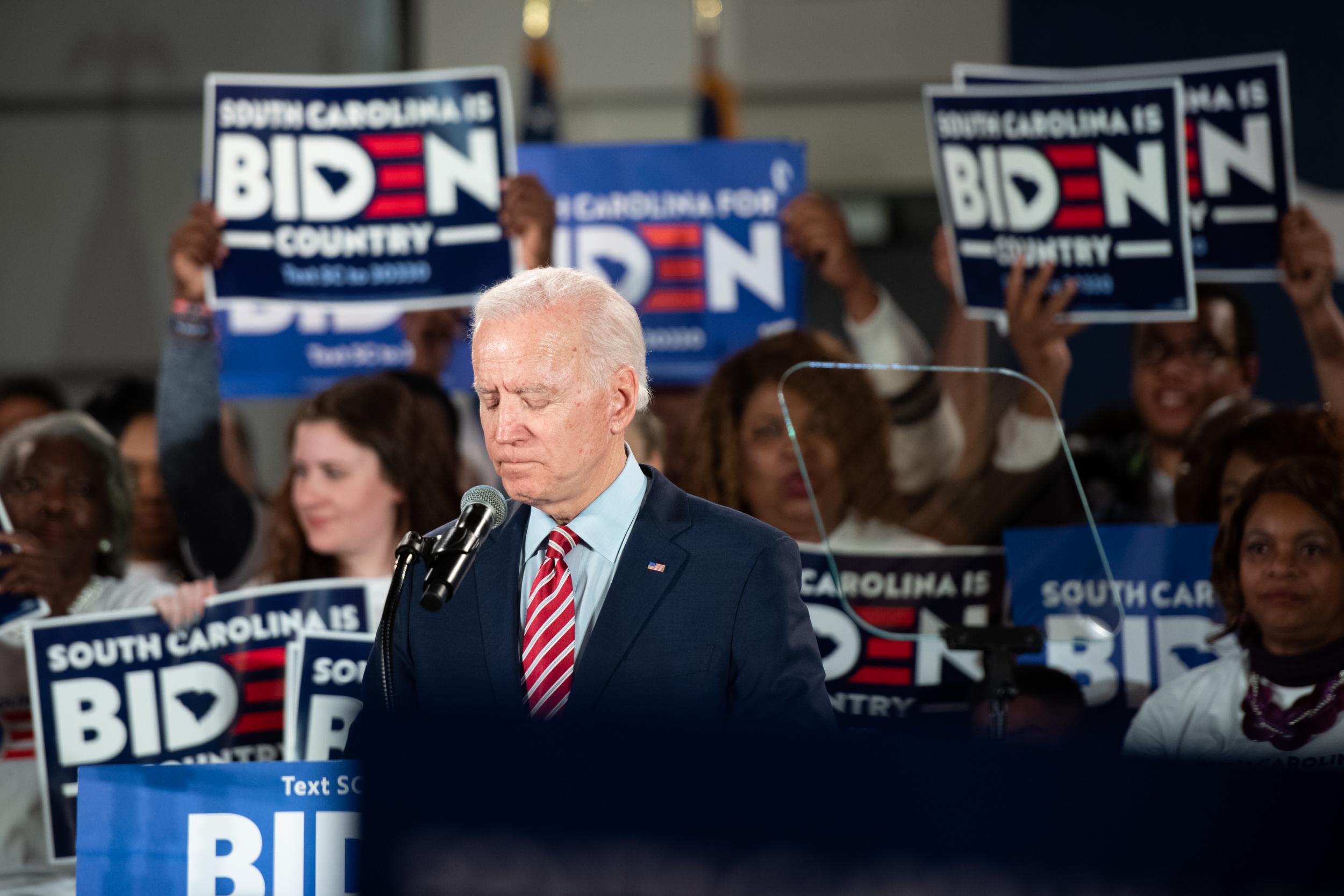New Hampshire primary: Biden scrambles to keep presidential hopes alive as Sanders soars
The field is now narrower and even more white, writes Andrew Buncombe


Perhaps the most telling thing about the most noticeable New Hampshire speech was not what was said but where it was delivered.
Joe Biden was already campaigning in the city of Columbia when the numbers came in, having flown out of town before it was official.
No matter. Having come in a dismal fifth behind Bernie Sanders, Pete Buttigieg, Amy Klobachar and Elizabeth Warren, and struggling to scrape together 10 per cent of the vote, the former vice president could have gone to the South Pole, never mind South Carolina, and still been unable to hide from the truth.
“We just heard from the first two of 50 states. Two of them. Not all the nation, not half the nation, not a quarter of the nation, not 10 per cent – two,” he told supporters.
“Where I come from that’s the opening bell, not the closing bell. The fight to end Donald Trump’s presidency is just beginning.”
Unlike Buttigieg, and unlike Sanders in 2016, the former vice president had always banked on strong support among people of colour in South Carolina and Nevada, something underscored in the polls. Yet that support is not without a caveat.
Much of it was based on his role as Barack Obama’s vice president, and the belief that he had the best chance of defeating Donald Trump in November. If that disappears, then people will start to seriously look at some of the other candidates they had previously not considered.
Biden is obliged to put on a brave face, not only for his supporters, but for himself. Yet things are not looking good. He is not the only candidate in the race getting on in years, but unlike the democratic socialist from Vermont, his efforts are starting to look weary and tired. Sooner rather than later, it seems time will be called on his campaign.
Warren may also be having to make difficult decisions too, sooner than she might once have expected. On Tuesday she struggled into fourth place in New Hampshire, 10 points behind Amy Klobachur. Having come a somewhat disappointing third in Iowa, she also needed a first or second place to give herself fresh momentum.
But changing the narrative after the first two states to vote can be hard. It is not impossible; in 1992, Bill Clinton did not win a primary until he took Georgia on Super Tuesday that year.
But his campaign was kick-started by a stunning second place in New Hampshire, something Biden and Warren would love to have repeated. Rather, that momentum was taken by the campaign of Klobuchar, the Minnesota senator who looks to quickly gain traction, where polls currently have her behind.
Even before all the results, New Hampshire had winnowed the field. Andrew Yang announced he was leaving the race, as did Michael Bennet. Of more concern to those who hoped the Democrats would manage to maintain a diverse field, Deval Patrick indicated he was likely to drop out too.
If Sanders and Buttigieg now move forward, one representing the party’s progressive wing, the other its centre, there is still uncertainty about what plays out in the next few weeks.
Michael Bloomberg, who sat out the first four voting states, has been spending millions of dollars of his own money in adverts in many of the battlefield states likely to determine the 2020 election. On 3 March, we should see just how well spent that money has been.
Join our commenting forum
Join thought-provoking conversations, follow other Independent readers and see their replies
Comments